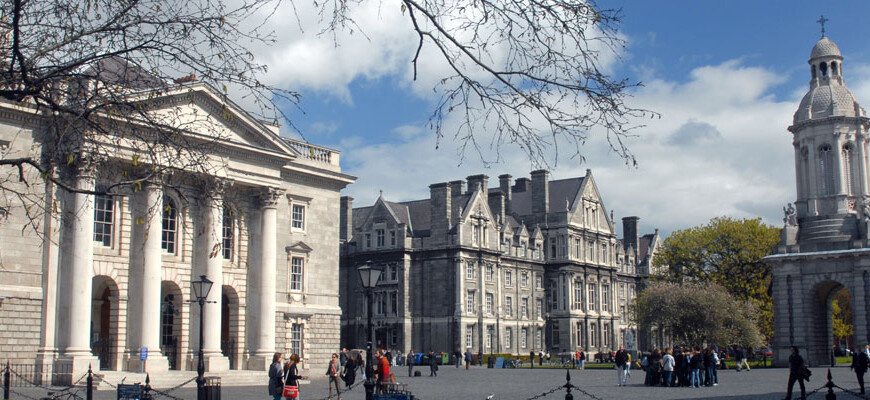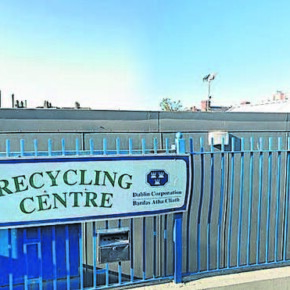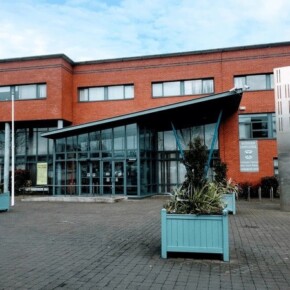Research suggests head shop closures reduced drug harm
Padraig Conlon 16 Nov 2020
Research from Trinity College Dublin suggests that the closure of Ireland’s head shops in June 2010 resulted in a decline in the incidence of drug-related emergency hospital admissions.
The study, recently published in the European Journal of Public Health, adds weight to the view that the legislative action taken by the Department of Health to close these outlets was warranted as general health, psychiatric and addiction problems were indeed increasing.
The study looked at the pattern of drug-related hospital admissions before, during and after the arrival and departure of head shops in Ireland.
It focuses on the five-year period of 2008-2012 – with head shops being at their peak in 2010 and disappearing in late August 2010.
The study was a collaboration between the Department of Public Health & Primary Care in Trinity College Dublin and the HSE’s Health Intelligence Unit and UCD.
Its key findings included:
- During the period of greatest head shop activity in Ireland, in the first 8 months of 2010, the rate of drug-related emergency hospital admissions (DRHAs) into medical hospitals was 9% higher than the same period in 2008
- The rate of DRHAs was almost one-third lower in 2012, two years after the head shops ceased sale of new psychoactive substances (NPS)
- Statistical analysis of the trends estimates that the downward trend in admissions commenced in June 2010, the month after the passage of legislation which criminalised possession and sale of most NPS and resulted in immediate closure of half the head shops
- The findings of this study add to the growing range of studies which point to an escalation in health harms coinciding with the presence of head shops and a decline in harms with the onset of their closure.
The study specifically looked at admissions into Irish general hospitals via the emergency department.
It included admissions which were related to use of any drug and calculated the average daily rate of such admissions in each of the 60 months from January 2008 to December 2012.
Its focus was on young adults (aged 15 to 34) as it was known that these were the heaviest users of the so-called NPS sold in head shops.
These included drugs such as mephedrone and synthetic cannabis products like ‘Spice’.
While it was clear in 2010 that some people who used NPS were experiencing health problems due to that use, it was unclear whether they were more harmful than other traditional drugs such as cocaine, cannabis or heroin.
It was suggested that the health problems related to drug use might deteriorate if head shops were closed due to a combination of people sourcing NPS via a more dangerous black market and returning to use more dangerous older drugs.
The findings of this study indicate that such concerns are unfounded. NPS appear to have simply added to the pre-existing overall burden of health harms while sold in head shops. Once that source of supply was removed, the health problems reverted back towards their baseline.
DrBobby Smyth, Clinical Senior Lecturer in the Department of Public Health & Primary Care, Trinity College Dublin, said:
“If you look beyond drug policy to alcohol or cigarette policy, these findings should not really come as a surprise. When substance use is normalised and made more accessible, harms escalate. When access is reduced, harms reduce.”
A vast network of head shops developed rapidly across Ireland from late 2009. These shops sold potent drugs such as mephedrone and synthetic cannabinoids.
They were able to do so legally as these new psychoactive substances (NPS) were not specifically mentioned in Ireland’s Misuse of Drugs Act, which makes drugs such a cocaine and cannabis illegal.
In May 2010 the number of head shops reached its peak. The government responded by adding over 100 drugs to the Misuse of Drugs Act, thereby criminalising people who sold or used these new drugs.
As additional non-banned NPS then arrived in some locations to replace the recently banned NPS, Justice Minister Dermot Aherne acted again in August 2010 to criminalise the sale of any psychoactive drug.
This effectively shut the head shops and ended the legal sale of NPS in Ireland.
While attention seems to focus persistently on the perceived failures of past and current drug policy, it is important to acknowledge and reflect upon our past successes.












